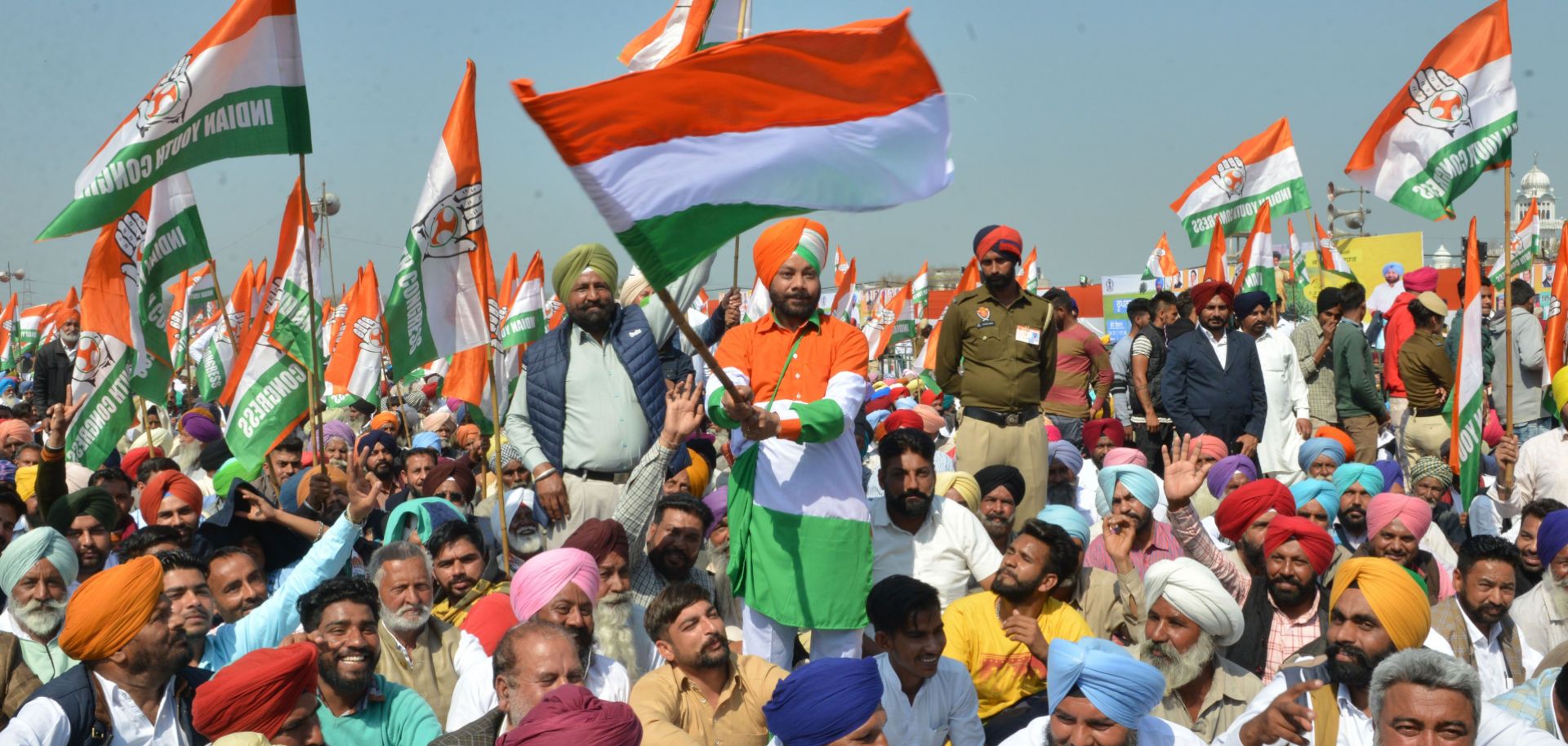ASSESSMENTS
In the Indian Elections, Voters Will Weigh Jobs Against Security
Mar 10, 2019 | 17:19 GMT

Supporters of the Indian National Congress (INC) party attend a rally in Punjab in March 2019. Narendra Modi, the most powerful Indian prime minister in a generation, is leading his incumbent Bharatiya Janata Party (BJP) against a raft of opposition parties under the Indian National Congress (INC) banner, all unifying in a bid to dislodge him from power.
(NARINDER NANU/AFP/Getty Images)
Highlights
- Prime Minister Narendra Modi rode to victory in 2014 on a message of economic prosperity, but given India's lackluster job creation in recent years, that will be a difficult sell in the next election.
- To fire up support for his re-election, Modi will, therefore, shift the focus of his 2019 campaign to development and national security matters.
- To challenge Modi, India's opposition parties' will attempt to paint him as corrupt, though such tactics will only feed into the prime minister's narrative that the opposition platform lacks substance.
- Regardless of the upcoming election's outcome, however, the next government in New Delhi will be forced to grapple with creating jobs while advancing the country's lagging industrialization.
Proceed to sign up
Register NowAlready have an account?
Sign In